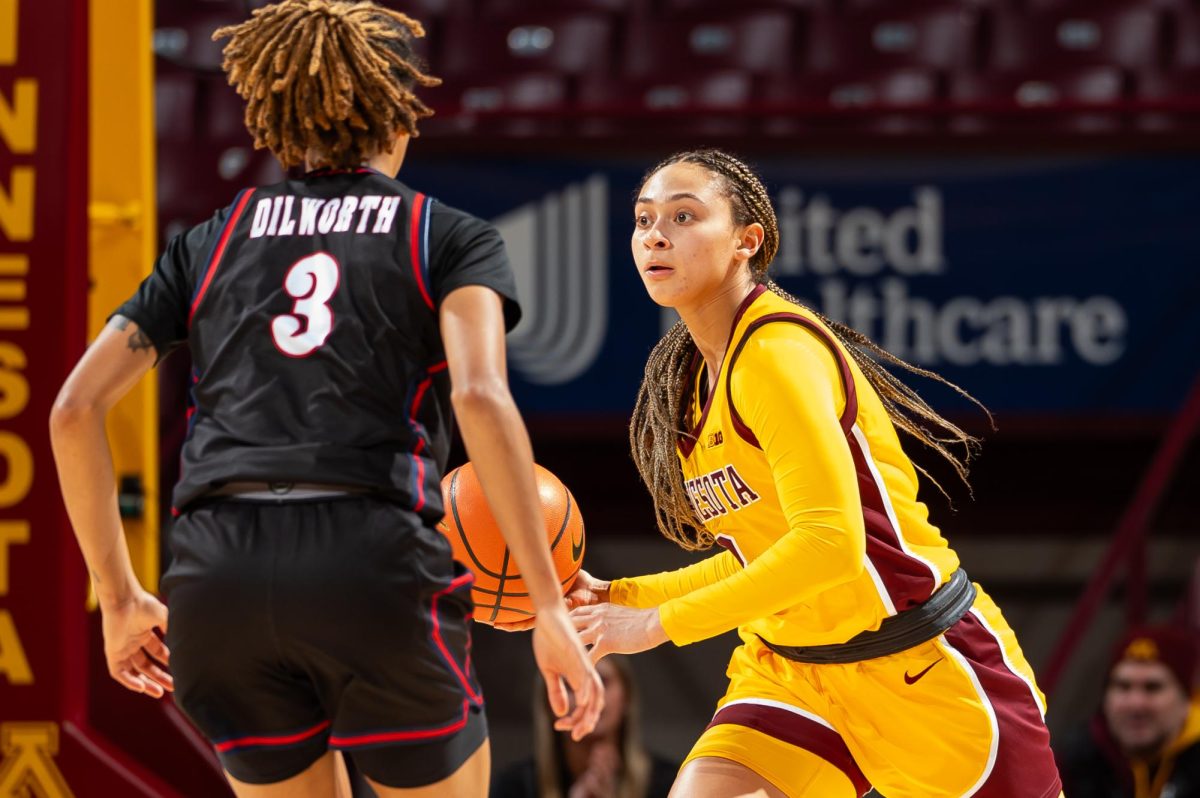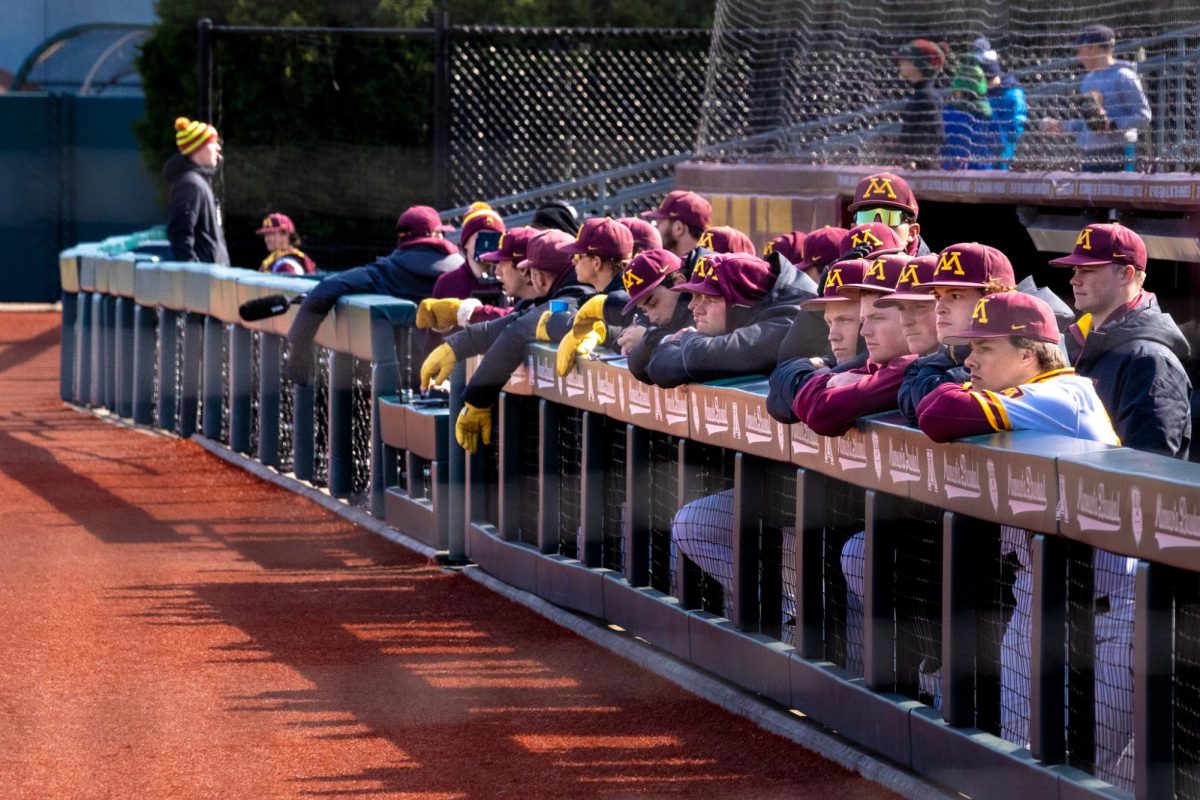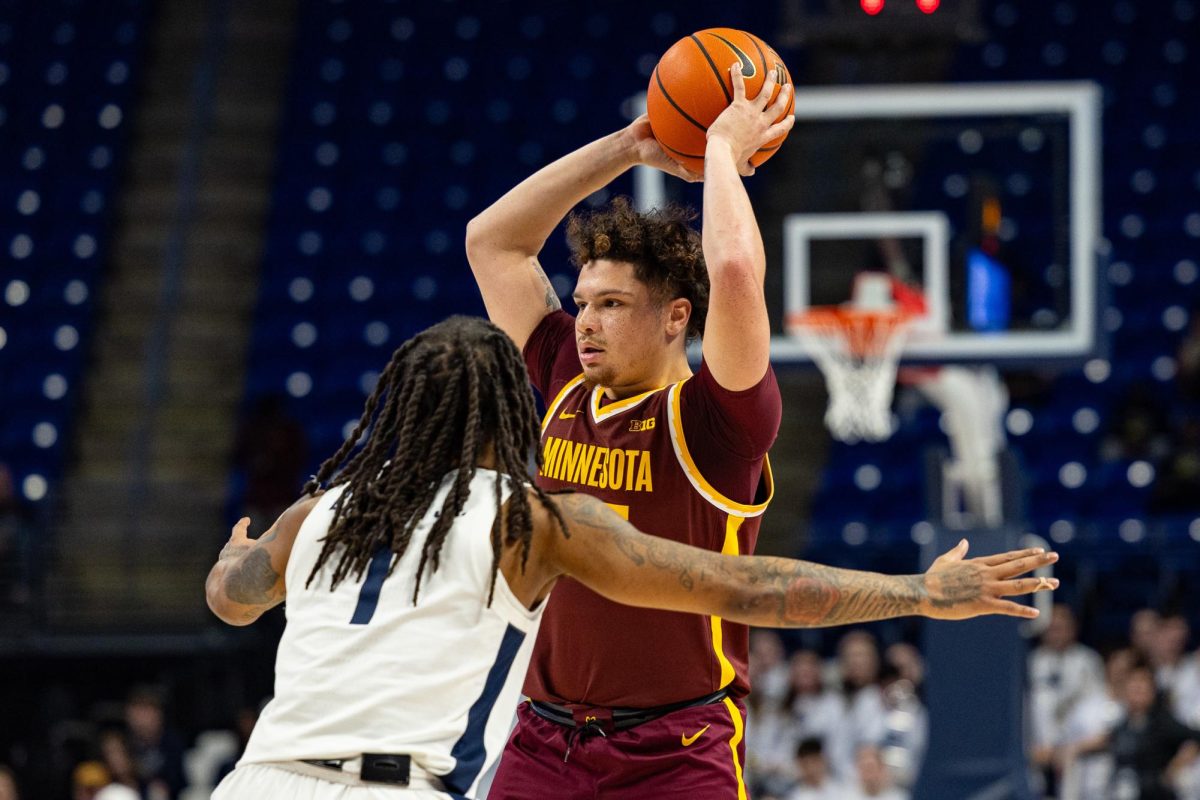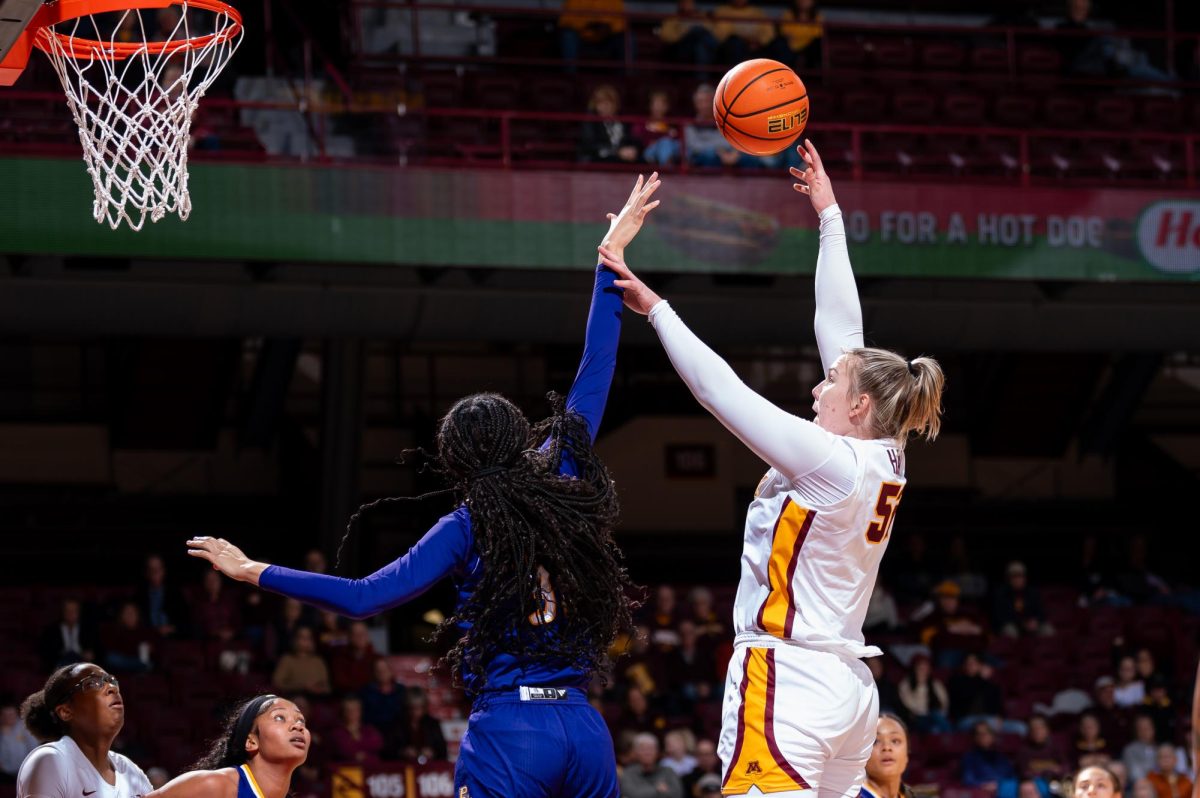Six University of Minnesota students on a weekend road trip to Madison, Wis., usually lends itself to shenanigans.
For Minnesota’s bass fishing club, it meant a Big Ten Classic victory on Sept. 30 on Lake Farm Park and Lake Waubesa against conference rivals.
“Beating Wisconsin on their home turf, I’m still trying to process it,” club president Joseph Ponessa said. “I don’t know about all of them, but most of [the Wisconsin’s anglers] grew up fishing on those lakes.”
Minnesota finished atop the pack of the Big Ten-only tournament with 33 pounds of fish. Wisconsin came in second with 25.5 pounds.
Despite the eight-pound advantage, Ponessa and his crew were short-handed.
The six-man team filled three boats — the minimum required to compete.
Schools like Wisconsin, Nebraska and Illinois prepped with five boats and 10 anglers in the water — the most allowed.
Each school picks its top three boats to weigh in, and each boat counts its five heaviest fish. The team with the most weight in its top three boats is the victor.
Minnesota’s three boats brought in more pounds than any combination of three boats across the Big Ten.
“We were the most efficient, plain and simple,” senior Kyle Chadek said.
City fishing
The urban nature of Minnesota’s campus makes a fishing club a tough sell for students.
However, the most devoted anglers make sure there’s a place for the like-minded to go. Ponessa’s club now has about 20 members.
Ponessa, a native of Shoreview, Minn., said he’s been fishing “ever since he can remember,” and taking over the University’s club allows him to continue the lifelong passion.
Recruiting isn’t all too necessary, Ponessa said, because the fishing-obsessed will come to him.
“I’ve been fishing ever since I could hold a pole,” sophomore member Chris Burgan said.
Burgan, a Rhinelander, Wis., native, has been fishing in tournaments since he was 14. He even competed in the Wisconsin state tournament a few years ago.
He proved to be the club’s ace in the hole during the Big Ten Classic.
His state tournament experience took place on the same chain of lakes where Minnesota claimed victory last month.
“I just tried to give the guys a preview, let them know the conditions of the lake beforehand,” Burgan said.
The veteran angler said he pointed out high-traffic areas that other clubs were sure to attack first.
Burgan’s advice served as better help than Minnesota’s little preparation.
The club hadn’t even signed up for the Big Ten Classic until a couple weeks prior, Ponessa said. He said many clubs had signed up months in advance.
Ponessa sent emails to club members asking for participation, and the six who competed were among the few to reply.
“We were a little nervous going into it,” University sophomore Bradley Parker said. “We weren’t exactly sure what we were going to try until Saturday [Sept. 29].”
Competitive nature
Each program had the day before the tournament to go out on the water and get a feel for where the fish were biting.
Minnesota was out on the water by 7 a.m. on Saturday as the sun was still breaking the horizon, Chadek said.
“It’s exhausting,” Chadek said. “I think we spent 18 hours on the water between both days.”
On tournament day, the club’s members made sure they were on the water by 6:45 a.m. They had only a few hours of sleep in a six-man hotel room between the two days.
“You don’t really think of fishing as an intense sport,” Chadek said. “But it is very competitive, especially in the Big Ten.”
Halfway through tournament day, Ponessa and Parker’s boat had only netted two fish — a grave concern since five fish are needed to even be in contention for the championship.
A change in location and a stroke of luck had the pair reeling in three other fish in the matter of minutes.
“We only got five good bites all day,” Ponessa said. “But they were the right ones.”







